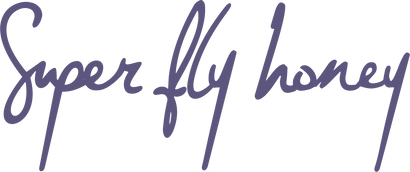FREE WORLDWIDE SHIPPING OVER USD $120 OR $12 FLAT RATE
FREE WORLDWIDE SHIPPING OVER USD $120 OR $12 FLAT RATE


Robin de Meyere: The Aerospace Engineer, Lawyer, Doctor and Pole Dancer
July 03, 2024 5 min read

Forget stereotypes. Imagine a brilliant aerospace engineer with a PhD, a lawyer who crushes intellectual property cases, and a scientist who owns a studio. Now picture this same person defying gravity as a passionate pole dancer. That's Robin, and his story is about to redefine what it means to be a pole dancer – and a whole lot more.
My Pole Dancing Journey: From Skinny Nobody to Passionate Performer (Q&A)
Q: How did you get into pole dancing?
Robin: Pole dancing wasn't exactly on my radar until I was selecting which university to attend. I saw a clip online of a pole dancing club at Imperial College London and thought it looked absurd, so I figured, why not? Here I was, a super skinny guy with zero experience in any kind of sport or dance, picking a university based on the fact that they had a pole dancing society. It sounds crazy now that I say it out loud, but that's how it all began 11 years ago.

Photo by Justine Torres (IG: @justine_trrs)
Q: What were some of the challenges you faced early on, and how did you overcome them?
Robin: Those first few months were rough. I was so out of shape that I kept getting injured. Remember how I told you I used to be super skinny? Well, that meant my body wasn't used to the demands of pole dancing at all. The first time I tried a pegasus on spin pole, I completely tore my obliques. It hurt so bad I couldn't even walk, cough, laugh or sneeze for a week! Despite the setbacks, I was having too much fun to give up. The London University club offered cheap classes three times a week, and I became obsessed. I guess you could say I was hooked.
The other challenge is less about being gay but more about being a man in a mostly women-dominated industry. Some studios wouldn't let me take classes because they were women-only spaces. There were even times when I, as a professional instructor, was rejected from teaching workshops because of my gender. Whilst I understand the need for safe spaces for women to thrive in such a patriarchal society, the minority genders in pole are men and non-binary folks, such that to exclude minorities from teaching can only further alienate and funnel the industry.
Q: How has your identity as LGBTQ influenced your involvement in pole dancing?
Robin: Overall, the dancing community has brought me a lot of joy and inspiration. I am also a member of the UK Frame Up dance company - a second family of sorts. They've been incredibly welcoming and open-minded.
What I'm really hoping for is more acceptance all around. The industry needs to be more open to the idea of men and LGBTQ+ people participating. More surprisingly, I sometimes get judged for having pursuits outside of pole dancing, it’s as if some are saying ‘you’re not serious about pole dancing because you’re also a lawyer’. There are so many amazing dancers out there who are also doctors, lawyers, and software engineers. Just like my friend Peachy Poler, who is a full-time doctor and a fantastic pole dancer. We all have these multifaceted lives, and pole dancing is just one part of that for many of us. From within the industry, the stigma around pluridisciplinary individuals, and those who partake in more sensual activities should be eliminated. Outside the industry, I wish people would see pole dancing as a legitimate career. In the future, I hope people can be more open-minded about all aspects of pole dancing, from who participates to how it's viewed by society.

Photo by Ginger Snapperly (IG: ginger_snapperly)
Q: As someone people look up to in pole dance, how do you inspire the new generation of pole dancers? Any tips for them to chase their passion without worrying about what others think?
Robin: There's a misconception that having multiple careers means you're not serious about any of them. I challenge this idea. It's totally possible to be passionate about pole dancing and have another successful career at the same time.
People shouldn't be boxed into categories. I'm gay and a pole dancer, but those are just two pieces of the puzzle. I also have successful career paths as a lawyer and an aerospace engineer.
By being open about my life, even the seemingly contradictory parts, I hope to inspire others to be themselves. I don't shy away from the fact that I do pole dancing and that's the first thing that pops up if you search my name online, even though it might not seem like something a lawyer or engineer would do.
Ultimately, I want to show people that being open about your true self, even if it challenges expectations, can open more doors than it closes.
Photo by Dirk Bader (IG: dirk_bader)
Q: What are your top 3 tips for someone wanting to get into pole dancing or is already doing it but needs the motivation.
Robin:
- Don't be afraid to start, no matter your body type or experience level. As a pole dance instructor, I constantly hear people worry they're not strong or built "right" for pole dancing. Let me tell you, that's the biggest misconception. Body shape and size truly don't matter.
I had this experience teaching an advanced class that really stuck with me. Most of the students were plus-sized women, and there was also this calisthenics-type guy who signed up thinking it would be like a human flag class – all strength and power moves. During the class, I asked everyone to hold an ayesha. To my surprise, the fit guy struggled to hold it for even half a second, while all the plus-sized women held it comfortably for 30 seconds to a minute! It was a real eye-opener. Strength comes in all shapes and sizes, and pole dancing can help you build it regardless of where you start.
Now, I'm not gonna lie, there might be some moves where your body type makes things a little trickier. For example, I used to have trouble doing any cross leg grip because of my thigh gaps. They'd just slide right off the pole! But these are minor hurdles, and there's always a way to adapt or find an alternative move.
- Find a studio that feels welcoming and an instructor who understands your body and goals. There are studios that focus on different styles of pole dancing, such as heels-basedor pole sports, and there are studios that cater to specific communities.
At my studio, Cobalt Flame, we're a diverse bunch! From lawyers and doctors to entrepreneurs, we all share a passion for pole dancing. We actively promote inclusivity and diversity, and platform instructors of Asian heritage, offering a variety of class styles. It doesn't matter if you're a complete flow beginner or a seasoned pro, there's a space for you here.
- Keep things interesting by trying new styles and cross-training. If you're feeling bored with your pole dancing routine, try a new style of pole dancing, or take a class in a different movement discipline, like calisthenics or yoga. This can help you develop new skills and reignite your love for pole dancing.
More Pole Dancing Tips
Need the extra push to start your pole dancing journey? Check out these 10 Benefits of Pole Dancing.
If you’re new to it or still eager to learn more about pole dancing, here are great blogs to read:
Want more inspiring stories? Check these out.
Subscribe
Sign up to get the latest on sales, new releases and more …

